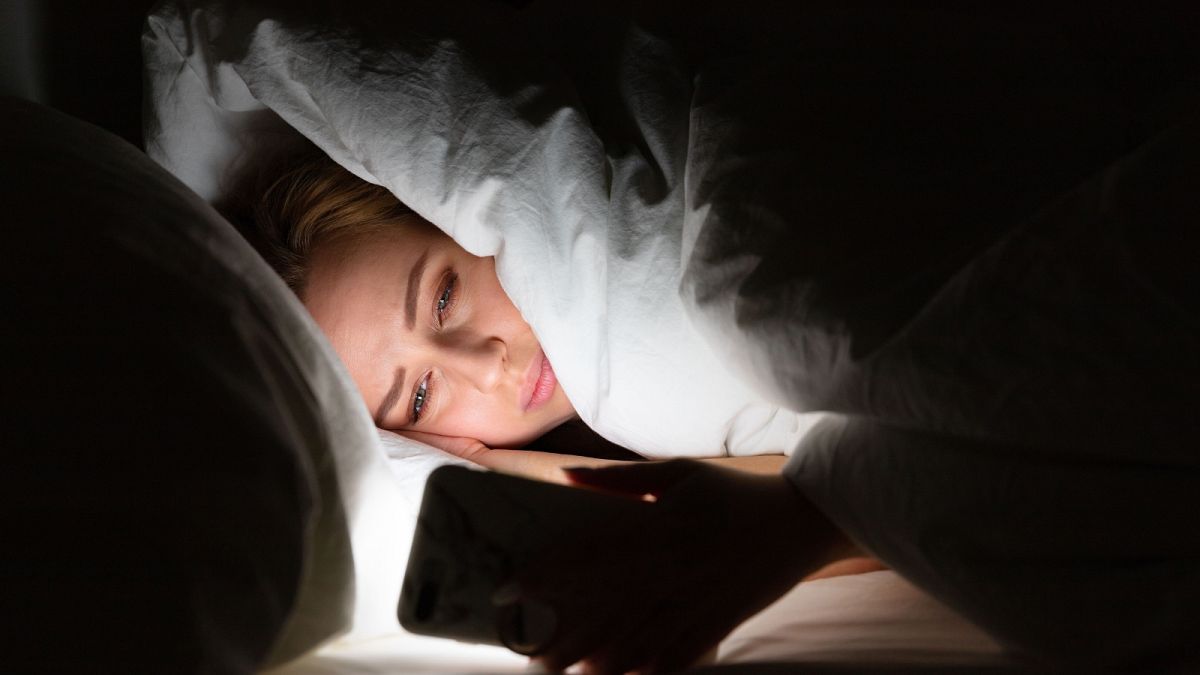Here's what experts suggest to change your bedtime routine, and avoid screens and the inevitable late-night doomscrolling.
Despite warnings about excessive screen time at night, many people still use their phones before going to bed.
"There are a million and one ways screens create problems with sleep," said Lisa Strauss, a licensed psychologist specialising in cognitive behavioural treatment of sleep disorders.
The brain, she said, processes electric light as sunshine, which suppresses melatonin production, delaying deep sleep.
Insufficient sleep has long been linked to negative health outcomes. A recent study found that disrupted sleep in your 30s and 40s may even be linked to memory and thinking problems later in life.
Smartphones are particularly disruptive to your circadian rhythm that regulates sleep and other hormones, research has shown.
Melissa Milanak, an associate professor at the Medical University of South Carolina specialising in sleep health, said your brain needs to wind down before bedtime to get the restorative deep sleep that helps the body function.
"You wouldn’t take a casserole out of the oven and stick it right in the fridge. It needs to cool down," Milanak said. "Our brains need to do that too".
'Getting hooked'
Algorithms designed to be engaging compel many social media users to scroll longer than they intended.
"Now it’s 30 minutes later, when you wanted to watch a couple videos and fall asleep," Milanak said.
Studies have also linked doomscrolling to poor mental and physical health outcomes.
Though much of the scientific research on online media focuses on adolescents and young adults, Strauss said most of her clients struggling with insomnia are middle-aged.
"People go down these rabbit holes of videos, and more and more people are getting hooked," Strauss said.
How can you break the habit?
Redesigning a bedtime routine to add rewarding behaviours such as reading a physical book can be helpful.
Milanak suggests using that hour before bed to take a warm bath, listen to a podcast, make school lunches for the next day, spend time with family or call a relative in another time zone.
"Make a list of things you like that never get done. That’s a great time to do stuff that doesn’t involve screens," she said. Using a notepad to write down the to-do list for the next day helps keep you from ruminating in bed.
Experts recommend doing activities in another room so the bed is associated with sleep. But if there’s no other private refuge at home, "establish a distinct microenvironment for wakefulness and sleep," Strauss said.
That could mean sitting on the other side of the bed to read, or even just turning the other way around with your feet at the headboard. Finally, put your phone in another room or far away.
"Environmental control can work better than will power, especially when we’re tired," she said.
Other sleep tips include setting an early bedtime, keeping a consistent sleep schedule, and making your bedroom quiet and relaxing.
What if stopping isn't realistic?
There are ways to reduce the harm such as setting the phone to night mode or reducing screen brightness.
Hold the phone far from your face and at an oblique angle to minimise the strength of the light.
Minimise tempting notifications by putting the phone on "do not disturb," which can be adjusted for specific people if needed.
Strauss also recommended asking yourself why checking social media has become your late-night reward.
"Think about the larger structure of the day," she said. Everyone deserves solitary moments to relax, but "maybe be more self-indulgent earlier so you have what you need".



